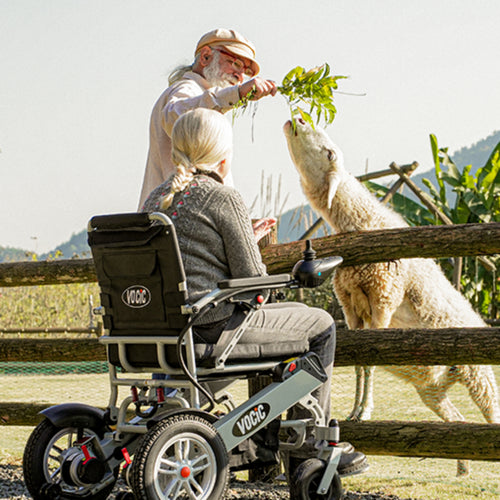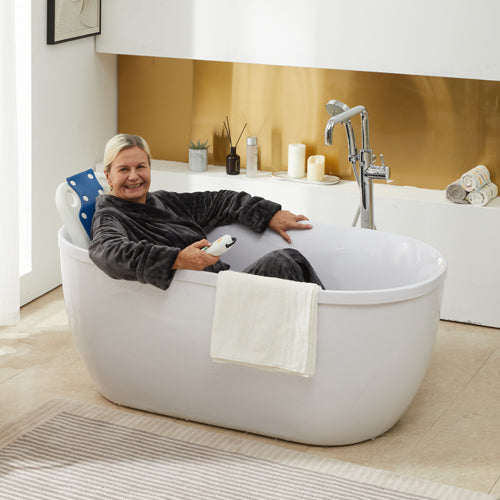Moreover, the need for round-the-clock care makes it difficult to get adequate rest, and the chronic lack of sleep and social support often leads to emotional isolation and anxiety, further compounding mental stress.
It’s well known that adult children face significant physical, mental, and financial pressure when caring for aging parents, particularly those who are only children. The steep costs of medical care, assistive devices, and specialized services add to the financial burden, especially when caregivers are unable to work.
This economic strain becomes even more pronounced. When chronic illnesses or cognitive impairments are involved, caregivers frequently feel ill-equipped to provide the necessary care. Changes in emotional dynamics, the reversal of roles, and shifts in the elderly person’s personality contribute additional psychological strain, making the caregiving process even more taxing.
“Just handling the medical and financial paperwork alone leaves me exhausted, not to mention the shopping, cooking, and appointments. I love my mom dearly, but it’s getting harder every day,” shared one user in a discussion about "What's the hardest part about taking care of an elderly parent?"
If you're currently facing or anticipating these challenges, the following three tips might be helpful:
1. Reach out for help from those around you, whether it’s family, friends, or neighbors.
2.Consult professional agencies and consider hiring a caregiver to assist with your elderly parent's care.
3.Invest in the right mobility aids to ease the physical burden of caregiving.
Loren Brown, a VOCIC user, was facing these exact challenges and chose to purchase a Z51 rollator walker to alleviate the strain on his 90-year-old mother’s mobility.
When asked, "What prompted you to purchase the VOCIC product?" Loren shared, "I bought this rollator walker from Amazon, and I chose the Z51 because VOCIC mobility aids have a great brand reputation and product quality. One of my favorite features is its 2-in-1 functionality: the Z51 rollator walker can be used independently by my mom as a walker, or I can push her when she gets tired. In addition, VOCIC offers thoughtful 24-hour after-sales service, which was another key reason I chose the Z51."
Loren’s mother struggles with mobility and finds it challenging to move around both inside the house and when traveling. Standing for long periods can hurt her knees, and there’s always a risk of falling, which makes daily activities a constant source of concern.
Things changed after she got her new Z51 rollator walker.
The Z51 Shift Combo 2 In 1 Rollator - Transport Chair Walker provides essential support during walking while featuring adjustable handles, making it suitable for people of most heights. Its built-in seat allows users to rest when tired, reducing muscle fatigue and catering to the daily needs of individuals with limited mobility.
“She uses the Z51 rollator walker at home, transporting items from room to room, on steep driveways, marble floors at airports, and gravel roads.” Now, the Z51 has become inseparable from Loren’s mother, even accompanying her during air travel. “It has allowed my 90-year-old mother more mobility in public places, such as airport travel (we take it with us on the plane), doctor’s appointments, etc.,” Loren added.

“It’s lightweight, folds up easily into the car, and is suitable for airplane travel. It’s comfortable to sit on, and the backrest is very enjoyable,” Loren remarked, expressing his satisfaction with the Z51 during their trips.
If, like Loren, you're caring for an elderly person with limited mobility, especially those with conditions like Parkinson’s disease, severe osteoporosis, or extreme frailty, choosing a reliable mobility aid could make daily life a bit easier.
“It's been two years and one month since I started taking care of my mom. She’s now 95 and suffers from dementia. For me, the first step was accepting that my mom would never get better. At the same time, I’ve missed out on so much life and freedom. Thinking about everything I’ve had to give up makes me anxious, so I sought help—mobility aids and a caregiver. I found the VOCIC team, and they were incredibly attentive, answering every question and providing technical support whenever I needed it,” Maria wrote in a thank-you letter to the VOCIC marketing team.
Understanding the struggles of caregivers and users requires more than empathy alone. That’s why VOCIC designs every product with user interviews and market research at its core, listening to people’s pain points and needs. This ensures that each product becomes a trusted companion.
For those caring for patients—whether family members or professional caregivers—VOCIC hopes its mobility aids, with their simple steps and comfortable design, help patients experience activities as they did when they were “normal people.” For families and caregivers, we aim to provide a sense of release and freedom from the demanding and often exhausting daily care routines.







